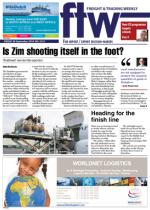Economists and importers/
exporters have largely
welcomed the outcome of last
week’s Scottish referendum,
which analysts also said
reduced the risk of the United
Kingdom (UK) leaving the
European Union (EU). But
has the relationship been
tarnished and will some
major businesses still act
on their threats to move
out of a divided Scotland?
That remains to be seen say
economists, who are calling
for unity in focusing on trade
growth moving forward.
CEO of Aberdeen Asset
Management, Martin Gilbert,
who had previously said that
Scotland “would prosper”
as an independent county,
also welcomed the end to
the uncertainty of the last
few months. “Scotland has
long been a world leader
in business sectors such
as oil and gas, whisky and
investment. The task now is to
grow the rest of the economy
with the strong support of
politicians of all parties,” said
Gilbert in a press statement.
Managing director of Tax
Café, Nick Braun, told FTW
that the ‘No’ vote proved that
many Scots know that a ‘Yes’
vote doesn’t make economic
sense. “Trade with the rest
of the UK is worth over two
thirds of Scotland’s output.
Anything that disrupts
that would be bad for both
economies,” he said.
With Scotland remaining
part of the UK, it still
participates in the EU-SA
Trade Development and
Cooperation Agreement
which allows for duty-free
imports and exports between
the two countries, said Braun.
With the uncertainty over,
the pound immediately
strengthened against the
rand, which makes South
African exports more
competitive in the UK market.
According to Braun, South
Africa and Scotland have close
economic ties, with SA being
the seventh biggest market
for Scotch whisky. “Scotland
imports mainly wine and fruit
from South Africa,” he said.
CAPTION
South Africa is Scotland’s seventh largest export market for
Scotch whisky.

